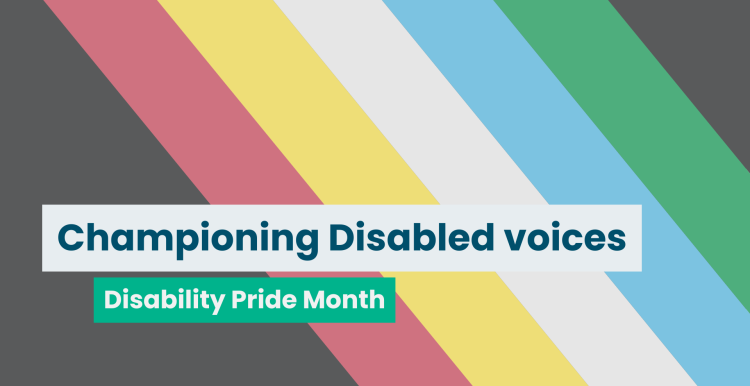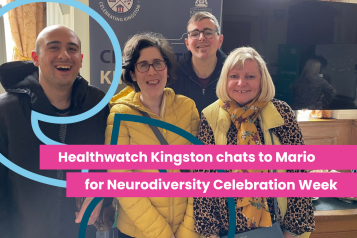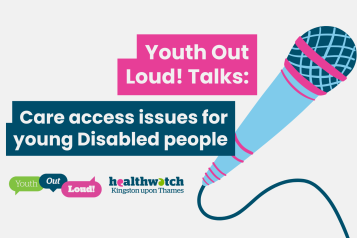Healthwatch Kingston celebrates Disability Pride

July is Disability Pride Month, offering an opportunity to celebrate the identities, cultures, and social contributions of Disabled people. Disability Pride Month seeks to combat stigmas associated with disability, and it also offers an opportunity to raise awareness about the challenges that Disabled people face in daily life.
In observance of Disability Pride Month, Healthwatch organisations across South West London are collaborating to share key findings from our engagement with Disabled people, their carers, and their health and care providers. You can help spread the word by downloading our social media toolkit and posting widely.
Background
Since 2023, Healthwatch organisations in South West London have led on seven projects engaging with Disabled people and their families and carers. They have also led collaborative groups, such as the South West London Community of Practice focused on the Accessible Information Standard in GP practices and the Kingston All-Age Learning Disability Partnership. Healthwatch have also ensured learnings from these discussions are captured in key strategic documents such as the Kingston All-Age Autism and ADHD Strategy 2025-2030.
Recommendations
Several key themes have emerged from our research with Disabled people across South West London, their carers, and health and care staff:
- Improving health and care staff’s awareness of the experiences of Disabled people and of their responsibilities to support their needs is critical. Many local disabilities charities offer disability awareness trainings, and free on-demand training is also available online.
- Many Disabled people are not aware of their rights under the Accessible Information Standard. The Accessible Information Standard describes how health and care services must meet the communication and information needs of Disabled people that affect communication. NHS, local charities, Healthwatch, and others should engage with people covered under the Standard to raise awareness.
- Health and care providers often have limited knowledge and time to create accessible communication materials for Disabled people. There is support available locally to help create accessible materials.
Tools for implementing recommendations
We have created a South West London-wide resource listing locally-led and national trainings, accessible communication resources, and other resources to support health and care providers improve their understanding and better meet the accessibility needs of Disabled people, especially those with communication needs.
More information about our research in South West London
The following is a list of ongoing and completed research engagement projects completed with people living with disabilities since 2023:
- Healthwatch Kingston and Youth Out Loud! created a powerful podcast series speaking to young Disabled people and their families about their experiences accessing NHS and social care services, and the impact this has on their lives.
- Healthwatch Kingston investigated the health and care needs of socially isolated, physically Disabled adults.
- We are currently conducting work to evaluate BSL services in GP practices across south west London.
- We published the South West London Accessible Information Standard project report, which focuses on meeting the communication needs of Disabled people in GP practices.
- Healthwatch Croydon has recently conducted a project focused on understanding and improving experiences of neurodivergent adults within health and social care services in Croydon.
- Healthwatch Richmond did research with parent carers and support workers who provide services for young people with special educational needs and disabilities.
- Healthwatch Wandsworth conducted research on the autism diagnosis pathway for 0-8 year olds.


